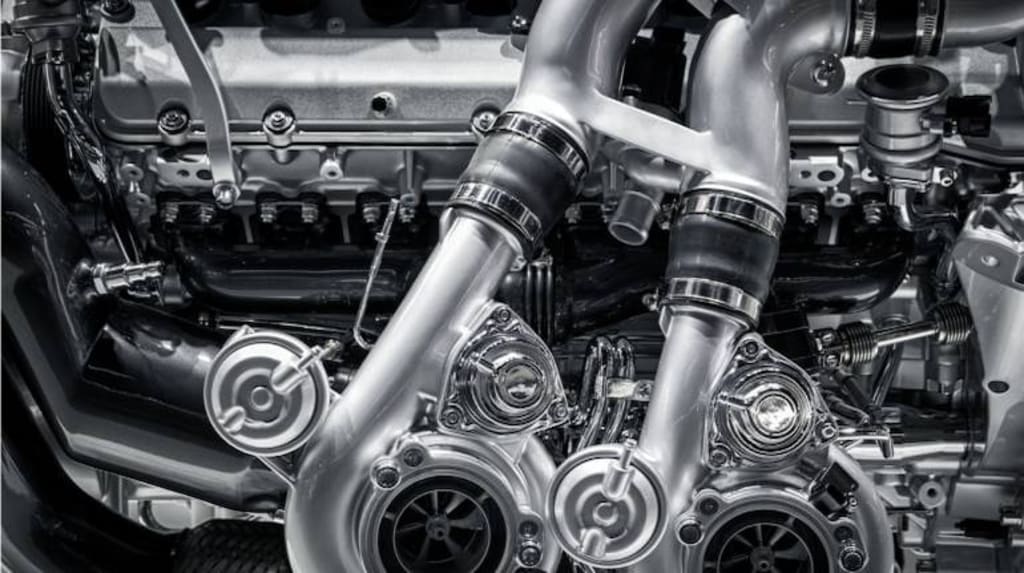Revving Up for the Future: Pricol, Minda Corp, and Vikram Mohan on the Indian Automotive Industry and the Road to Electric Vehicles
Pricol • Minda Corp • Minda • Vikram Mohan • CNBC TV18

I. Introduction
The automotive industry in India is one of the most important sectors of the country's economy. With a rapidly growing population and a burgeoning middle class, the demand for automobiles is increasing at an unprecedented rate.
Pricol and Minda Corp are two of the leading automotive companies in India, specializing in the manufacturing of automotive parts. Vikram Mohan, the Managing Director of Pricol Limited, recently appeared on CNBC TV18 to discuss the latest developments in the Indian automotive industry.
Pricol Limited
Pricol Limited is a leading manufacturer and supplier of automotive components and solutions. The company was founded in 1972 and has a strong presence in India and around the world.
Pricol's product portfolio includes instrument clusters, sensors, pumps, and other electronic components, which are used in a wide range of vehicles. Pricol has established itself as a leading player in the automotive parts manufacturing sector, with a focus on innovation and R&D.
Minda Corp
Minda Corp is another leading automotive parts manufacturer in India. The company was founded in 1958 and has a diverse range of products, including safety and security systems for automobiles, plastic interiors, and alloy wheels.
Minda Corp has a strong presence in India and has expanded its operations to several other countries, including Germany, Indonesia, and Vietnam. The company has a robust R&D program, and it is committed to delivering innovative and high-quality products to its customers.
Vikram Mohan
Vikram Mohan is the Managing Director of Pricol Limited and a well-known figure in the Indian automotive industry. Mohan has more than two decades of experience in the sector and has played a key role in driving the growth of Pricol over the years.
Under his leadership, Pricol has expanded its operations to several countries and has established itself as a leading player in the automotive parts manufacturing sector. Mohan is an alumnus of the Indian Institute of Technology (IIT) and has a Master's degree in Business Administration (MBA) from the Wharton School of the University of Pennsylvania.
CNBC TV18 Interview
In his recent appearance on CNBC TV18, Vikram Mohan discussed a range of topics related to the Indian automotive industry. He highlighted the challenges faced by the sector, including the impact of the COVID-19 pandemic, the shortage of semiconductor chips, and the rising cost of raw materials.
Mohan also spoke about the importance of innovation and R&D in the automotive industry and how companies like Pricol are investing in these areas to stay ahead of the competition.
Mohan also shared his views on the future of electric vehicles in India, which is an area of significant interest for the Indian government and the automotive industry.
He emphasized the need for a robust charging infrastructure and favorable government policies to encourage the adoption of electric vehicles. Mohan also spoke about the challenges faced by the industry in making electric vehicles affordable and accessible to a larger section of the population.
Indian Automotive Industry Challenges
The Indian automotive industry has been facing several challenges in recent years. One of the primary challenges is the impact of the COVID-19 pandemic, which has had a significant impact on the demand for automobiles.
The pandemic has disrupted supply chains, leading to shortages of raw materials, and a decline in consumer spending has resulted in a decline in sales.
Another significant challenge faced by the Indian automotive industry is the shortage of semiconductor chips. The global shortage of semiconductor chips has hit the automotive industry hard, with several companies facing supply chain disruptions and production cuts.
This has led to a decline in the production of vehicles and has put pressure on the profitability of the industry.
The Indian automotive industry is also grappling with rising raw material costs. The cost of steel, aluminum, and other materials used in the manufacturing of vehicles has been rising steadily, leading to an increase in the cost of production.
This has put pressure on the margins of companies in the industry, and many are looking for ways to reduce costs and increase efficiency.
Importance of Innovation and R&D
Innovation and research and development (R&D) are critical to the growth and success of the automotive industry. Companies that invest in innovation and R&D are better able to develop new products, improve efficiency, and reduce costs.
In a highly competitive market, innovation is often the key differentiator that sets companies apart.
Pricol and Minda Corp are two companies that have invested heavily in innovation and R&D. Pricol has established an Innovation Centre in Coimbatore, which is focused on developing new products and technologies.
The company also has a dedicated R&D center, which is equipped with state-of-the-art facilities for testing and validation. Minda Corp has a similar focus on innovation, with a dedicated R&D center in Pune.
Future of Electric Vehicles in India
The Indian government has set an ambitious target of achieving 100% electric vehicle sales by 2030. While this may seem like a lofty goal, the Indian automotive industry is making significant progress towards achieving it. Several companies in the industry are investing heavily in the development of electric vehicles and related technologies.
However, the adoption of electric vehicles in India is not without its challenges. One of the primary challenges is the lack of charging infrastructure.
While several companies and the government are working to build a robust charging infrastructure, the pace of development has been slow. The lack of charging infrastructure is one of the key reasons why the adoption of electric vehicles has been slow in India.
Another challenge is the cost of electric vehicles. Electric vehicles are still relatively expensive compared to traditional petrol and diesel vehicles, which makes them less accessible to a larger section of the population. However, several companies are working to reduce the cost of electric vehicles, and the government is providing incentives to encourage their adoption.
Conclusion
In conclusion, Pricol, Minda Corp, and Vikram Mohan are prominent figures in the Indian automotive industry, and their views and insights are highly valued by policymakers, industry leaders, and investors.
The challenges facing the Indian automotive industry, including the impact of the COVID-19 pandemic, the shortage of semiconductor chips, and the rising cost of raw materials, require innovative solutions, and a focus on R&D.
The future of the Indian automotive industry is closely linked to the adoption of electric vehicles, and while there are several challenges to overcome, the industry is making significant progress towards achieving the government's ambitious target of 100% electric vehicle sales by 2030.
About the Creator
VIGNESH MAHENDRAN
As a content writer with a passion for compelling narratives, I bring creativity & attention to detail to every project. Goal is to produce high-quality writing that engages audiences & helps clients achieve their goals.





Comments
There are no comments for this story
Be the first to respond and start the conversation.